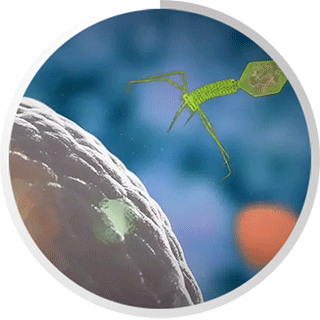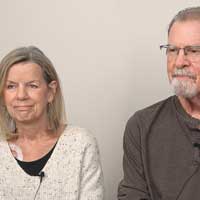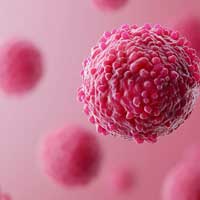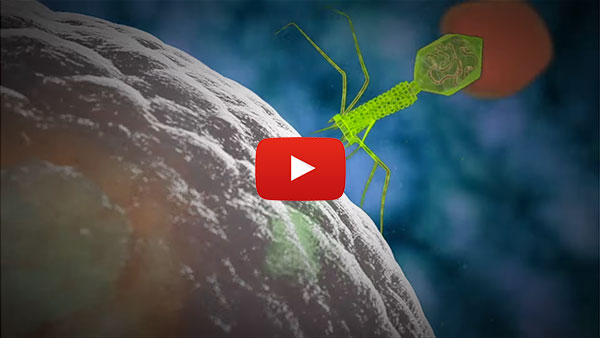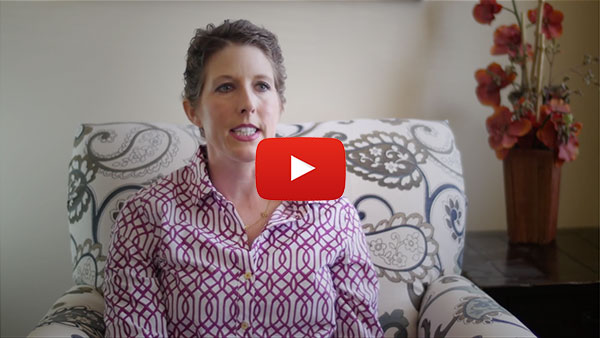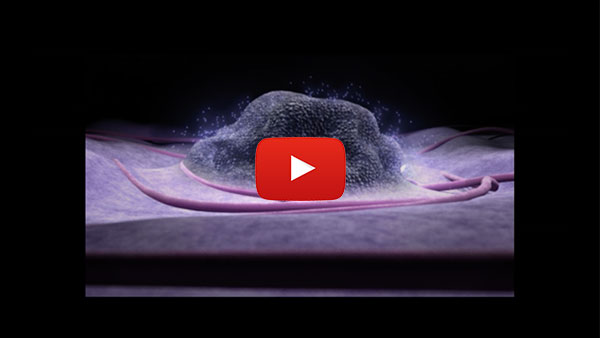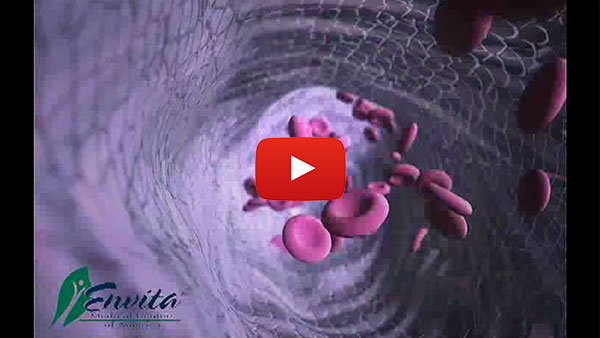A Stage 4 Cancer Chemotherapy Breakthrough
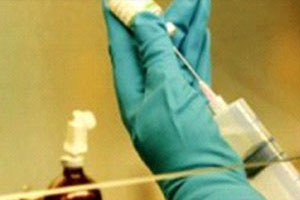
Many have been faced with the all-too-common dilemma that arises when the oncologist orders a standard regime of chemotherapy to treat their advanced or stage 4 cancers, even after chemotherapy had previously failed. Patients often feel that the course of treatment can be worse than the disease itself. What's more, there is seldom time to seek other specialized treatment options or to make a truly informed decision. Feeling rushed will likely amplify stress for the mind and body already overwhelmed by circumstance.
So what's a person to do? Let us first identify some common failures in the Stage 4 Cancer treatment process. Then, together we can explore some new life-changing solutions made available through our decade-plus clinical experience working with the most difficult cancers.
Chemotherapy is Only 2% Effective in Late Stage Cancers
Many late stage cancer patients have endured unforgiving chemo treatment regimens only to realize minimal benefits, or worse, to discover their cancer was completely unresponsive. When accepting new treatments, most patients are not aware that chemotherapy is just 2 percent effective in late stage cancers after a five year period.
Despite the National Cancer Institute's forty years of scientific research (which now costs upwards of $4 billion annually), stage 3 and 4 chemotherapy-driven cancer treatments have not progressed a whole lot. In fact, the treatments typically do not work.
In his book An Anatomy of Failure: A Blueprint for Future Years, Dr. Guy B. Faguet* suggests that chemotherapy has not been shown to assist or advance survival beyond five years in most adults who suffer with advanced and late stage cancers. The MD and Professor in the Hematology and Oncology Division at the Medical College of Georgia did a comprehensive job of exploring the potency and effectiveness of conventional chemotherapy. The doctor asserts that beyond decided proficiencies in treating a few types of cancers, like acute lymphocytic leukemia in youngsters, or choriocarcinoma, germ cell growths found in youths, chemo has a disappointing track-record.
Pharmaceutical Chemotherapy - Time To Look Beyond
Dr. Guy B. Faguet is not alone in his research-founded belief that chemotherapy is largely ineffective in dealing with advanced cancers or malignancies. Australian specialist Dr. Graeme Morgan* shares Faguet's view that chemotherapy is barely 2 percent effective in late stage treatment. With such a low success rate, it is time to deeply consider research-derived alternatives. With facts being what they are, it is no longer sufficient or responsible for medical practitioners to rely solely on the traditional, pharmaceutical model to solve such problems. Fortunately, other effective options do exist.
By and large cancer growth response, or "shrinkage," remains the primary focus of cancer treatment. Unfortunately, research demonstrates that such responses do not often correlate to elevated survival in patients. When traditional cancer treatment reports a 20 or 30 percent effect, it simply means that the patient's tumor shrunk by 20 to 30 percent. This is deceptive because the cancer typically grows back, oftentimes larger and resistant to the chemotherapy. The real measure is how long life is sustained and its quality therewith.
Envita is results-oriented — we measure our success in terms of tumor change, as well as the long-term outcomes and quality of life experienced by our patients. This continues to be our driving force for developing and perfecting unique, quality treatments for our patients.
Questioning The Experts May Send You Away Empty-Handed
When an oncologist explains whether or not a therapy is "working," the reality might not be so black and white. Such conventional cancer treatment protocols are laden with "let's wait and see language." In simple terms, if an individual lives five years or more from the beginning of treatment, than that treatment for cancer was considered a success, or that "it worked."
Because we live in an age of information surplus, more patients are questioning such results and asking better questions about their care. And, that is an excellent thing. The actual results with traditional treatments alone are far more ominous than one might think.
But Don't Abandon Chemotherapy Quite Yet!
While we have discovered that chemotherapy does not always deliver desired outcomes, it should be pointed out that most chemotherapeutic drugs are not customized or matched to patient-specific cancer/tumor or biopsy. Instead, pharmaceutical drugs are developed to fit a model that promotes certain drug regimens for certain cancer types. Sadly, these Chemo-regimens are constructed through pharmaceutical sponsorship in partnership with prestigious cancer doctors and hospitals working together to politically position protocols as standards of care. The end result means such protocols are moved through the FDA with quantities of sales pre-approved and guaranteed by Medicare.
As a result, chemotherapy drugs are often miss-matched to the patient's actual tumor. Amazingly, we have found this to be true for more than 75 percent of our patients, determined through molecular and genetic testing. For example, if someone has colon cancer, it is entirely possible that their specific biopsy or tumor would respond best to a chemotherapy drug typically used for breast cancer. These observations become increasingly important for those with advanced and stage 4 cancers.
Envita examines the genetic and molecular changes unique to a patient's tumor so that treatment options may be matched specifically to the tumor's molecular profile. Only then does Envita begin to target and identify custom-made treatments to help our patients. This process goes beyond simple chemo sensitivity testing, rather, it integrates unique delivery and targeting methods created to protect healthy cells and target cancer cells.
Are We Alone?
If our methodology is so effective, why don't all the other cancer groups follow suit? Well, in fairness, some are beginning to at least investigate the testing side of things. That being said, molecular and genetic testing has major impact on which chemo protocols get used. Ultimately, this affects the sales of the bigger, more established chemotherapeutic drugs – in many instances drugs that do not test very well.
Eventually, we expect that logic will prevail and testing of this manner will become the standard. In the meantime, moving through political red tape in the cancer industry remains a multibillion dollar undertaking. Look to Envita to help you find your way around it, in the immediate present.
Understanding The Conventional Cancer System
Standard oncology insists on following typical chemotherapy protocols, despite documentation that indicates ineffectiveness with advanced stage cancers. Why, do you ask?
Well, you should know that virtually all cancer Center use fundamentally identical variations of protocol regimens because they follow each other. In fact, the more prestigious the organization, the more this occurs. It is not uncommon to attend their respective board meetings and hear the discussion repeatedly return to using the same old non-proven method.
Unbelievably, most new and innovative cancer information and treatments are coming from outside the United States. "It doesn't work," or "It isn't proven" seem to be the popular answers given to patients with alternative curiosities. This is ironic, knowing that research indicates that traditional treatments ARE regularly being proven to NOT work
Understanding The Conventional Cancer System
- Long-term results from building the immune system.
- Removing the cause, such as toxins or cancer-causing carcinogens.
- Stopping chronic inflammation.
- Targeting cancer cells alone, not the human body's defense system.
- When such methods are adopted and consistently integrated, only then might we seriously consider cancer care as being effective or successful.
Take The Next Step
Discover Envita's Comprehensive Smart Oncology program today and learn how our unique approach and treatments will help you. We invite you to experience our proprietary PPMR Process and contact us with your questions – our patient care educators are available to help you every step of the way.
You will be empowered by our vast array of strategies, techniques, and treatments from across the globe, many of which you will likely be hearing for the first time. Let us guide you through the myriad opportunities available, via the integration of advanced natural medicine and state-of-the-art conventional approaches.
More than 80 percent of patients and doctors believe that our free, online seminars have enhanced their knowledge of integrative cancer medicine. Simply contact us to begin your quest.

